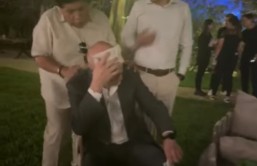A new study, published in the June 11 issue of the National Center for Health Statistics (NCHS) Data Briefs, revealed that one in 10 men suffers from depression and anxiety, yet only 41 percent are under medication or have talked to a doctor about it.
Researchers at the U.S. Centers for Disease Control and Prevention (CDC) surveyed more than 21,000 men between the ages of 18 and 44 from different races and ethnicities. The participants were asked if they have daily feelings of anxiety or depression, the mental health treatments they are taking, family income, health insurance coverage and their race and ethnicity.
About 6 percent of the non-Hispanic black men reported feelings of depression and anxiety compared to 8.5 percent of the non-Hispanic white men. Only 26 percent of the blacks were under medication while it is 45 percent for the whites. Data suggests that the non-Hispanic blacks are less likely to seek medical help due to lack of health insurance coverage because 39 percent of them are uninsured compared to 13 percent of the whites.
But is it really the lack of health insurance coverage that contributes to this disparity? The researchers think that social pressure plays a major role.
"We suspect that there are several social and cultural pressures that lead black and Hispanic men to be less likely than white men to seek mental health treatments," said Stephen Blumberg, study lead author and an associate director for science with the NCHS, according to HealthDay News.
"These pressures, which include ideas about masculinity and the stigma of mental illness, may be more pronounced for men of color," he said. "And these same forces may lead men of color to be more likely to deny or hide feelings of anxiety or depression."








